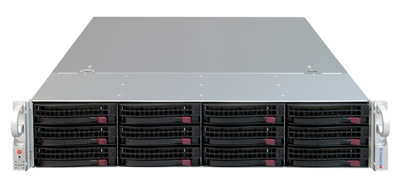MBX Brings NVMe SSDs and Xeon D Solutions to Server Appliance Design
Hardware platforms with SSD caching or tiering
This is a Press Release edited by StorageNewsletter.com on August 7, 2015 at 3:35 pmServer appliance contract manufacturer MBX Systems is equipped to engineer new customer platforms with next-generation NVMe-based solid state storage and Xeon D processor-based System-on-a-Chip products.
The company has close relationships with component vendors, ensuring prompt access to new products, and has been actively testing the newest components for several months.
The technologies will accelerate performance, decrease power consumption, reduce hardware footprint and provide other benefits to ISVs and OEMs involved in network security, storage, video surveillance and other industry sectors that utilize server appliances to simplify deployment of enterprise software.
Next-Gen solid state storage
The expected fall availability of newest NVMe flash controllers will enable the use of solid state drives supporting the NVMe storage interface standard, allowing hardware appliances to achieve data transfer speeds reported to be up to six times faster than 6Gb SAS/SATA SSDs. Eliminating the need for HBAs by connecting storage to CPUs via a PCIe link will also reduce latency and power consumption.
The company has been building hardware platforms with SSD caching or tiering since shortly after these technologies became available. For business recovery solutions provider Unitrends, for example, company’s engineered a line of backup appliances with category-first use of tiered flash storage that yielded 300% faster backups, 125% faster restores, 200% faster local archiving, and a 300% RPO improvement that multiplies the amount of data that can be protected every day.
Next-Gen processor/SoC products
The small form factor and architecture of high-performance, low-power Xeon D processor-based SoC lineup provide a variety of opportunities to improve appliance design. Both the size of the mini-ITX board and the 128GB memory support, for example, enable the Xeon D to be utilized for applications requiring a compact footprint or in clustered environments with multiple smaller appliances dedicated to different computing tasks.
The core design supports wide threading for such a small processor platform, making it ideal for efficiency, high bandwidth appliance applications, while the Xeon D’s fully integrated SoC minimizes the risk of isolated failures. That includes integrated 10GBE, again providing more functionality on a single chip as well as further shrinking the appliance footprint. 4- and 8-core Xeon D processors are available, with higher-performance 16-core SKUs to come.













 Subscribe to our free daily newsletter
Subscribe to our free daily newsletter
